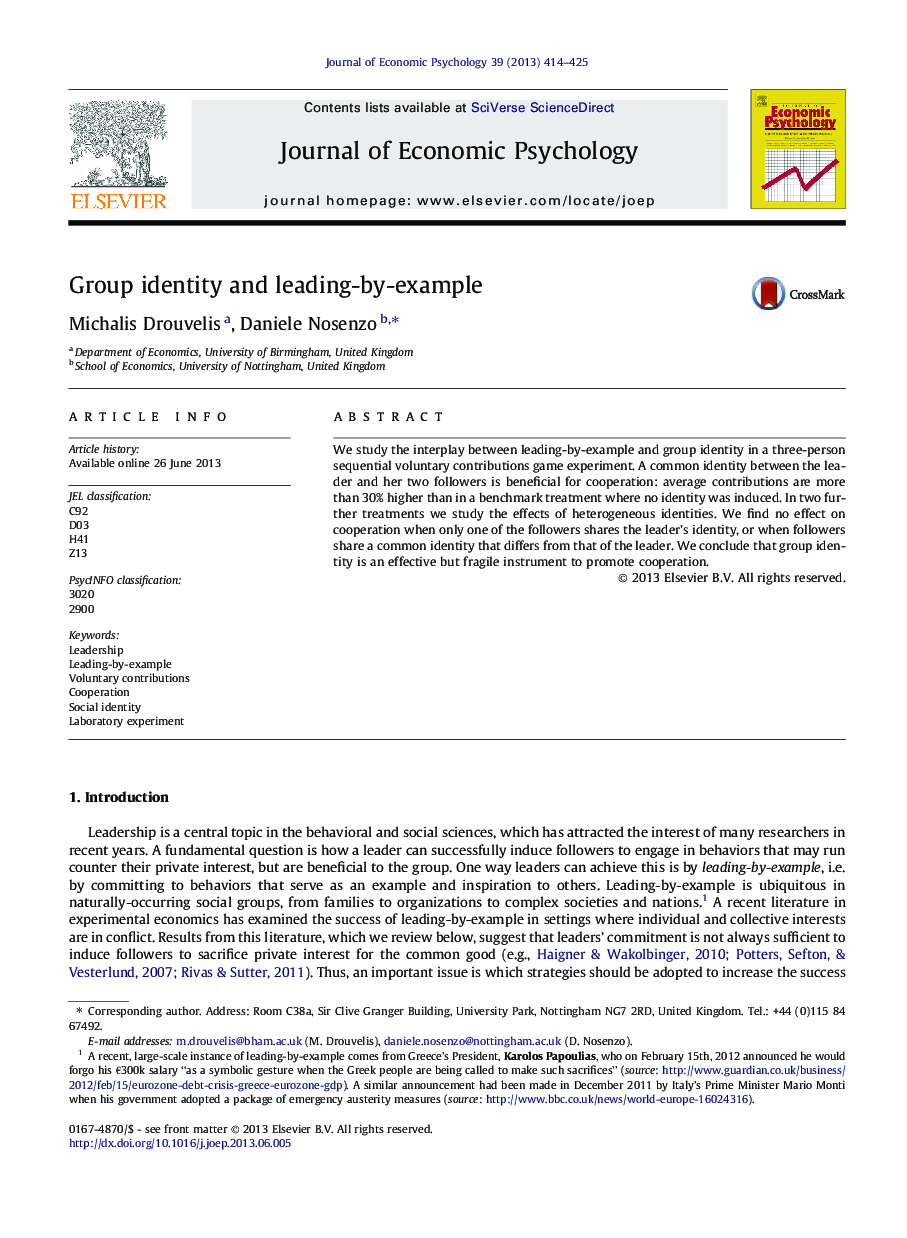| Article ID | Journal | Published Year | Pages | File Type |
|---|---|---|---|---|
| 7245009 | Journal of Economic Psychology | 2013 | 12 Pages |
Abstract
We study the interplay between leading-by-example and group identity in a three-person sequential voluntary contributions game experiment. A common identity between the leader and her two followers is beneficial for cooperation: average contributions are more than 30% higher than in a benchmark treatment where no identity was induced. In two further treatments we study the effects of heterogeneous identities. We find no effect on cooperation when only one of the followers shares the leader's identity, or when followers share a common identity that differs from that of the leader. We conclude that group identity is an effective but fragile instrument to promote cooperation.
Keywords
Related Topics
Social Sciences and Humanities
Business, Management and Accounting
Marketing
Authors
Michalis Drouvelis, Daniele Nosenzo,
